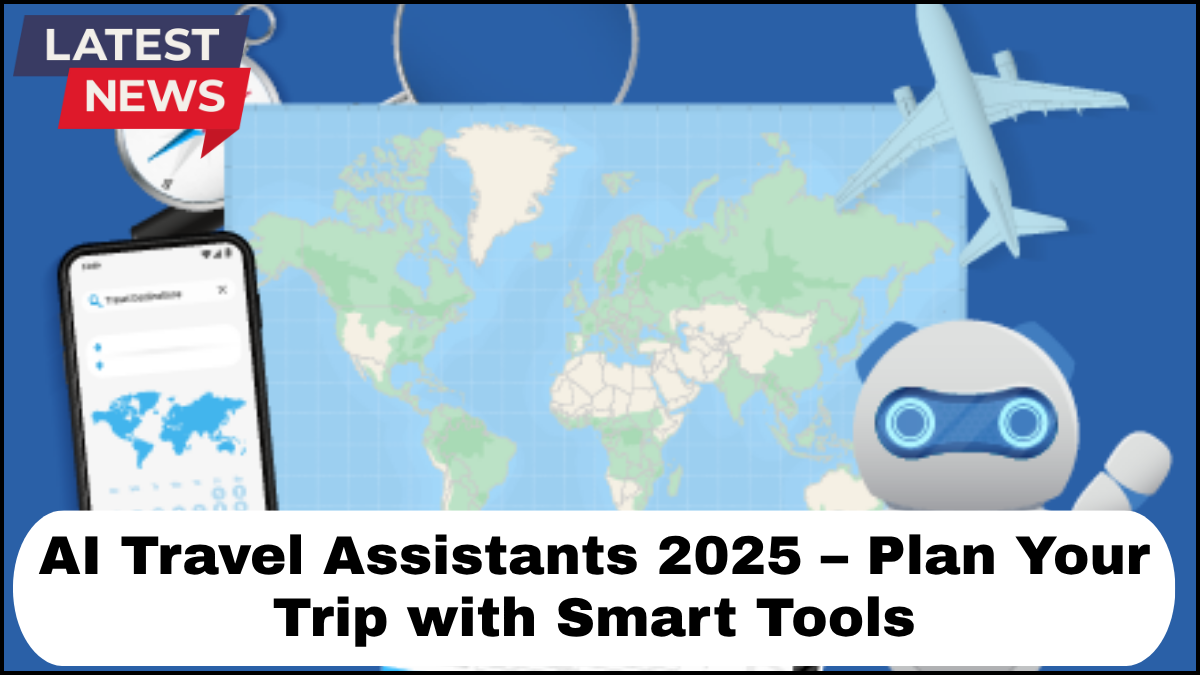As the travel industry accelerates into the future, AI travel assistants have become indispensable tools for modern globetrotters. These intelligent platforms are reshaping how we plan, book, and experience travel in 2025. Gone are the days of juggling tabs and struggling with logistics. Today’s smart trip planning is powered by real-time data, hyper-personalized recommendations, and intuitive automation.

What Are AI Travel Assistants?
AI travel assistants are intelligent software systems designed to help users with every aspect of travel. From booking flights and hotels to suggesting local experiences and sending alerts about delays or itinerary changes, they combine machine learning, natural language processing, and data analytics to deliver an all-in-one planning experience.
Whether integrated into mobile apps, messaging platforms, or smart devices, these assistants respond to user input and context to deliver precise and proactive travel solutions.
The Power of Smart Trip Planning in 2025
In 2025, smart trip planning isn’t just about convenience — it’s about optimization. AI travel assistants pull from massive databases of pricing trends, historical travel patterns, weather forecasts, and traveler reviews. This allows them to:
-
Suggest the best time to book for the lowest prices
-
Recommend offbeat destinations based on user preferences
-
Automatically build itineraries based on budget, travel style, and time constraints
-
Coordinate across multiple services (e.g., flights, accommodation, car rentals, events)
For instance, a user interested in a week-long adventure in Costa Rica might be presented with a tailored itinerary that includes the most scenic flight routes, eco-friendly lodging options, and a mix of rainforest tours and local culinary experiences—all managed in one interface.
Real-Time Adaptability and Automation
One of the standout features of AI travel assistants in 2025 is real-time adaptability. Flight delayed? Your assistant rebooks the airport transfer and alerts your hotel automatically. Bad weather forecasted at your destination? It suggests indoor activities or alternate cities nearby, complete with booking options.
These tools use predictive analytics to foresee disruptions and adjust plans before the traveler is even aware of a problem. It’s like having a 24/7 personal travel concierge—without the premium cost.
Voice and Chat Integration
Thanks to advances in conversational AI, many travel assistants now offer seamless voice or chat integration. Travelers can say, “Find me a five-day itinerary for Tokyo in September,” and receive instant options that fit their budget, interests, and schedule. The assistant may even recommend the best local festivals or niche neighborhoods that align with the traveler’s tastes.
Personalized Travel Like Never Before
AI travel assistants thrive on personalization. By analyzing previous trips, search history, and even social media activity, they learn what you love and what to avoid. A digital nomad might get updates on co-working spaces with strong Wi-Fi and nearby short-term rentals, while a family traveler might be shown kid-friendly hotels and attractions with stroller access.
Over time, these assistants evolve, making each trip smarter than the last.
Sustainability Meets Technology
Sustainability is a growing priority for travelers. AI travel assistants are helping meet this demand by:
-
Highlighting eco-friendly accommodations
-
Prioritizing public transit and carbon offset options
-
Suggesting sustainable activities and ethical wildlife experiences
In short, they don’t just plan trips—they help users travel responsibly.
Security and Privacy
With smarter tools come smarter safeguards. Today’s assistants are built with privacy-first protocols. They use encrypted connections, offer granular control over data sharing, and allow users to set parameters for what’s tracked or stored.
Travelers are increasingly trusting AI systems that respect personal information while delivering maximum utility.
Frequently Asked Questions (FAQ)
Q1: Are AI travel assistants free to use?
Many AI travel assistants are available for free through apps or websites. However, premium features or concierge-level services may come with a subscription or one-time fees.
Q2: Can AI travel assistants book on my behalf?
Yes. Most AI travel assistants can book flights, hotels, rental cars, and activities once given permission, streamlining the entire process.
Q3: What makes AI travel assistants better than traditional travel agents?
AI assistants operate 24/7, respond instantly, adapt to changing conditions, and personalize recommendations at scale—often at a lower cost.
Q4: How secure is my personal information with these assistants?
Reputable platforms use encryption and give users control over data. It’s essential to choose trusted services and review privacy settings regularly.
Q5: Can AI travel assistants help with visa or travel restrictions?
Absolutely. Many now integrate with official government sources to provide real-time updates on visa requirements, entry restrictions, and COVID-related policies.
click here to learn more